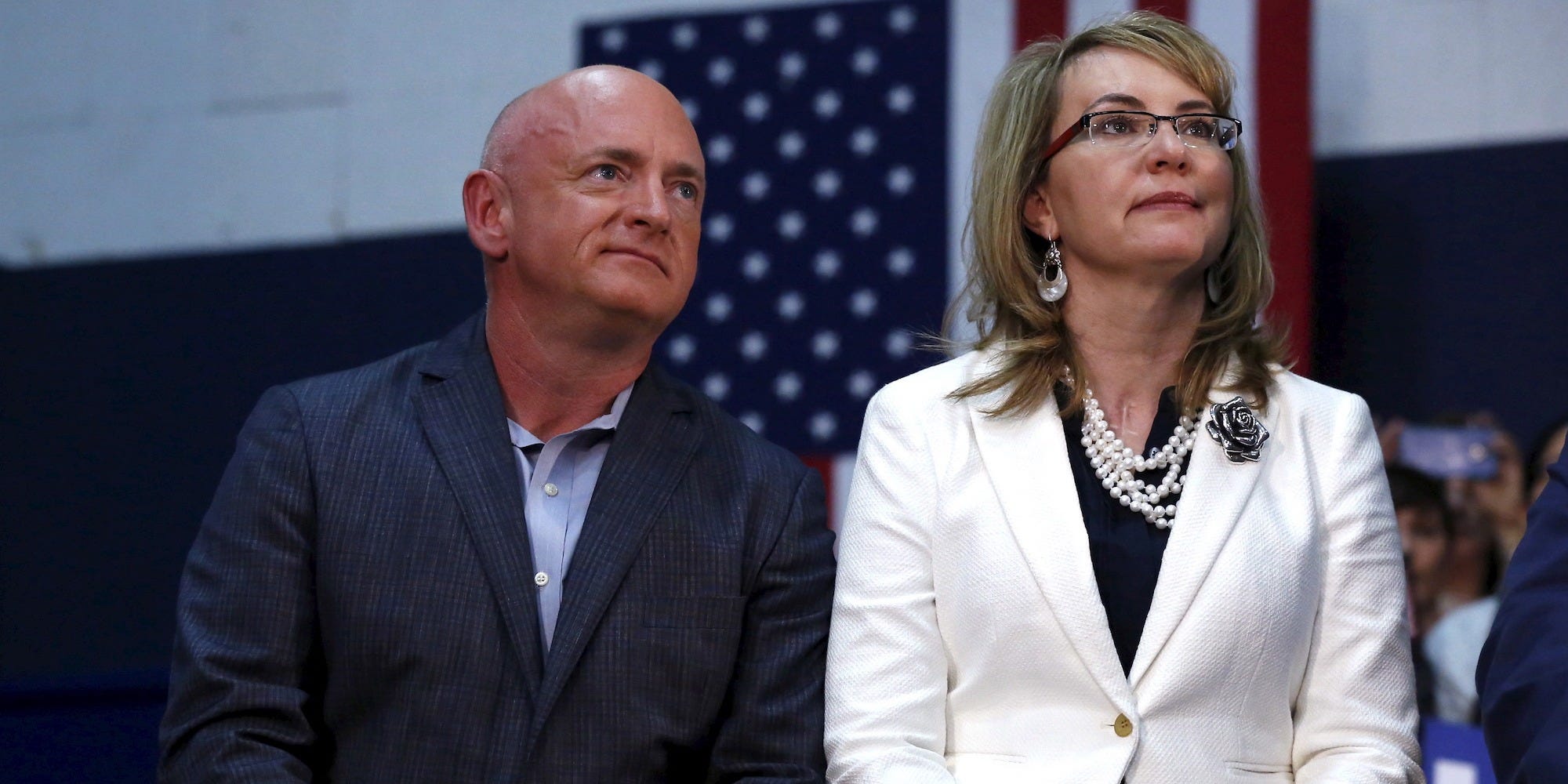- Sen. Martha McSally is running in a special election against Democrat Mark Kelly US Senate in Arizona.
- McSally was appointed to serve in the Senate seat held by the former Sen. John McCain and is running to serve out what would have been the rest of his term until 2022.
- Kelly, a gun prevention advocate and former astronaut, is a prolific fundraiser and formidable opponent, making this election one of the most competitive US Senate races for Democrats.
- Visit Business Insider’s homepage for more stories.
Sen. Martha McSally is running in a special election against Democrat Mark Kelly for US Senate in Arizona.
The candidates:
McSally, a former US House Representative, ran for an open US Senate seat to replace Sen. Jeff Flake in 2018 but lost to Sen. Krysten Sinema.
Gov. Doug Ducey then appointed McSally to serve in the US Senate seat held by the legendary former Sen. John McCain, who died in office in 2018. Now, McSally is running to serve out the rest of McCain’s term, slated to end in 2022.
Shortly after McSally took office in January 2019, former Navy captain, astronaut, and gun violence prevention advocate Mark Kelly announced he would challenge her in 2020 as a Democrat.
Kelly co-founded the organization now known as the Giffords Foundation with his wife, the former congresswoman Gabrielle Giffords, who was shot and seriously injured while meeting with constituents in Tucson in January 2011.
McSally is among the most talented fundraisers among the Republicans running for re-election this year, but she faces a tough match-up to catch up to Kelly.
Right out of the gate, Kelly proved himself to be a formidable fundraiser, bringing in several million dollars per quarter. He raised an eye-popping $12.8 million in 2020's second quarter compared to $9.2 million for McSally.
The stakes:
In addition to winning back the White House, regaining control of the US Senate for the first time since 2015 is a top priority for Democrats and would be a major accomplishment towards either delivering on a future president Joe Biden's policy goals or thwarting President Donald Trump's second-term agenda.
Currently, the US Senate is made up of 53 Republicans, 45 Democrats, and two independents that caucus with Democrats, winning that Democrats need to win back a net total of four seats to have a 51-seat majority (if Biden wins, his vice president would also serve as president of the Senate and would be a tie-breaker vote).
In her short time in the US Senate, McSally has aligned herself closely with Trump during her time in the Senate and taken conservative, pro-Trump stances.
And after previously being rejected by the voters in 2018, she's now in an increasingly precarious position vying for a full term in a year where the electorate is poised to be far friendlier to Democrats.
Thanks to Biden's strong performance among white, suburban, and senior voters, Arizona - once considered a Republican bastion - is now a tossup state in the electoral college. Biden leads Trump by 3.6 percentage points on average in Arizona, according to FiveThirtyEight's tracker of general election polls.
Given the general trending direction of the state and Kelly's strength as a candidate, Arizona could be the next best pickup opportunity for Democrats after Colorado.
The money race: Both candidates are prolific fundraisers. McSally has raised $30 million this cycle, spent nearly $20 million, and has $10.9 million in cash on hand, according to the Center for Responsive Politics. Kelly has raised $45.7 million, spend $24.5 million, and has $21.2 million in cash on hand.
What the polls say: Kelly has led McSally by a margin of four percentage points or more in every non-partisan poll conducted in 2020, according to FiveThirtyEight's tracker of Arizona Senate polls. An NBC News/Marist College poll conducted July 14-22 found Kelly leading McSally by 12 points, 53% to 41% while a Data for Progress poll found Kelly ahead by ten points, 50% to 40%.
What the experts say: The Cook Political Report and Sabato's Crystal Ball at the University of Virginia Center for Politics rate the race as lean Democratic, and Inside Elections rates it tilt Democratic.

